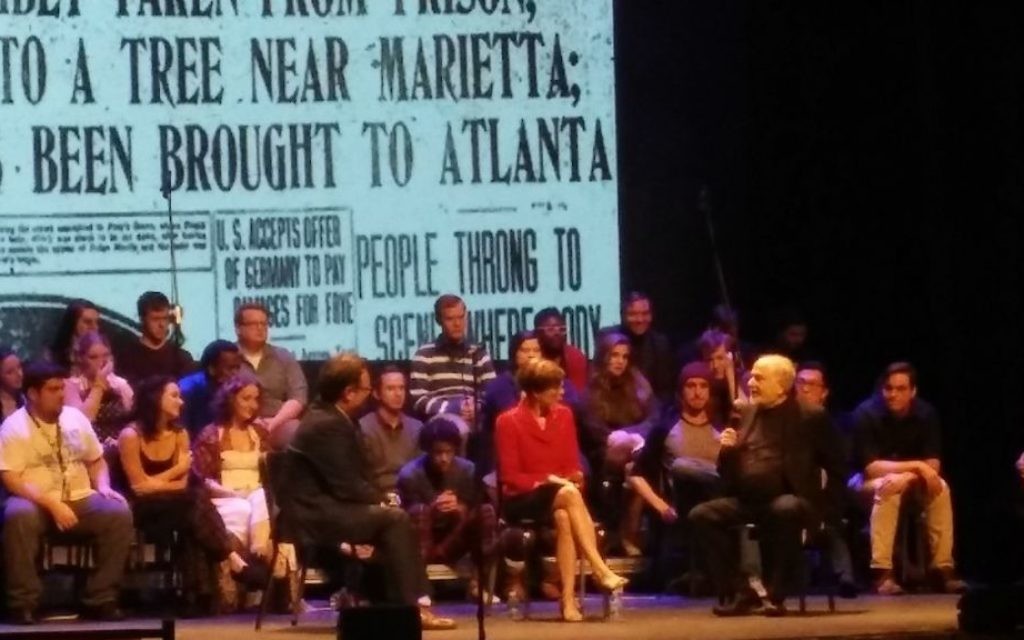‘Parade’ Marches to History’s Beat
Stage musicals don’t have to be carefree or comedic, but it’s still hard to imagine the layers of sadness of the Leo Frank case played out in songs and choreography.
Alfred Uhry’s “Parade,” as performed by Kennesaw State University theater students, made it seem like the perfect way to tell the tragic history of the slaying of Marietta teenager Mary Phagan, the railroading and convicting of Jewish pencil factory superintendent Frank, and the lynching of Frank.
The show flopped after its December 1998 debut on Broadway because it was overproduced, Uhry said, but a revamped version was a hit when it opened in London in 2007.
Get The AJT Newsletter by email and never miss our top stories Free Sign Up

The concert staging of the show Thursday, Nov. 19, at the Earl Smith Strand Theatre on Marietta Square was the first performance of “Parade” in Cobb County, where Phagan lived and Frank died, director and Cobb native Harrison Long said. (A scaled-down version of the show was performed three days later at Frank’s synagogue, The Temple.)
As surely as the first of Uhry’s “Atlanta Trilogy” of award-winning stage productions, “Driving Miss Daisy,” was a fictionalized version of real events, so is “Parade,” even though the names of the characters weren’t changed. As he acknowledged during a discussion after the Marietta show, Uhry did lots of reading about the case but never interviewed anyone connected to it because he was trying to write a play, not facts.
His imagination gives us a Leo Frank who is unhappy in the South, bewildered by his circumstances, and nervous around his Atlanta-native wife, Lucille. As Leo, Elliott Folds made the tragic figure’s journey to passionate love for his wife and acceptance of his fate believable.
But the genius of “Parade” is bringing Lucille out of the shadows of history — and the background of Uhry’s childhood as a friend of his grandmother’s — to be the central character. It is Lucille who suffers from Leo’s Yankee Jewish strangeness and the humiliation of his arrest and trial, who forces Gov. John Slaton to reconsider the case and commute Leo’s sentence, and who arranges a blissful final day with Leo at the Milledgeville prison, just hours before his abduction.
As Lucille, Avery Rabbitt perfectly hit every musical and emotional note and carried a strong show to unexpected heights.
Onstage after the show, Uhry embraced Rabbitt, then told the cast: “You guys are remarkable. It was wonderful.”





comments